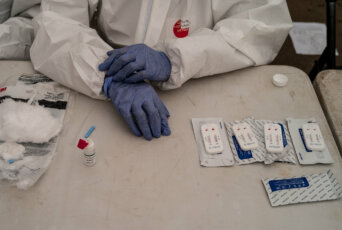- About
- Topics
- Picks
- Audio
- Story
- In-Depth
- Opinion
- News
- Donate
- Signup for our newsletterOur Editors' Best Picks.Send
Read, Debate: Engage.
| topic: | Health and Sanitation |
|---|---|
| located: | Bosnia and Herzegovina |
| editor: | Katarina Panić |
A photo studio owner in Novi Grad in northern-western Bosnia and Herzegovina was arrested last weekend for falsifying COVID-19 test results, the local police stated in a press release. They also found a fake Public Health Institute stamp in his store.
The man had falsified at least 200 test results between October 2020 to mid- January 2021. He used to sell them for 25 euros each, mostly to local people who live and work abroad - Western Europe predominantly. The workers have been coming home for weekends and holidays – despite the recommendations not to do so due the red zone classification of their home towns. Once they leave their homeland again, the negative test result is required for crossing the border back to the European Union.
“That means at least 200 people with unknown COVID-19 status have been cross[ing] the border in the last three months. These are people that we have evidence found in his PC. I’m afraid the number is even bigger, and I’m equally afraid he is not the only one who has been doing this,” a police officer told FairPlanet.
It seems that people who bought fake tests had no qualms with themselves or problem with the risk their actions posed to other people’s health. They’d rather see the triple-win situation. Asked why they did it, most of them said it cost twice less than the real PCR; you have the results immediately instead of waiting a day or two, and you know it will be negative in advance. That is exactly what you need for travelling. They also believe they must have been healthy since they don’t have symptoms.
“Some 25.000 population and it took three months to reveal him? Are we talking about Novi Grad (means: New Town) or NYC?” one of the locals commented.
“Dear police, please release him. We will need the vaccine passports soon,” another wrote.
The perpetrator was revealed by coincidence. In the neighbouring town of Prijedor, there is a photographer with the same surname. People started to ask the tests from him too. And then he got suspicious.
Fortunately, many countries were aware of the risk or have been warned in a timely manner. Some of them, like Slovenia, decided not to accept any PCR from Bosnia. Some, like Germany, required the travellers to isolate once they came back and then to retest afterwards. Yet, the vast majority of Bosnian diaspora still waits for better days to travel home.
Image by World Bank Photo Collection.
